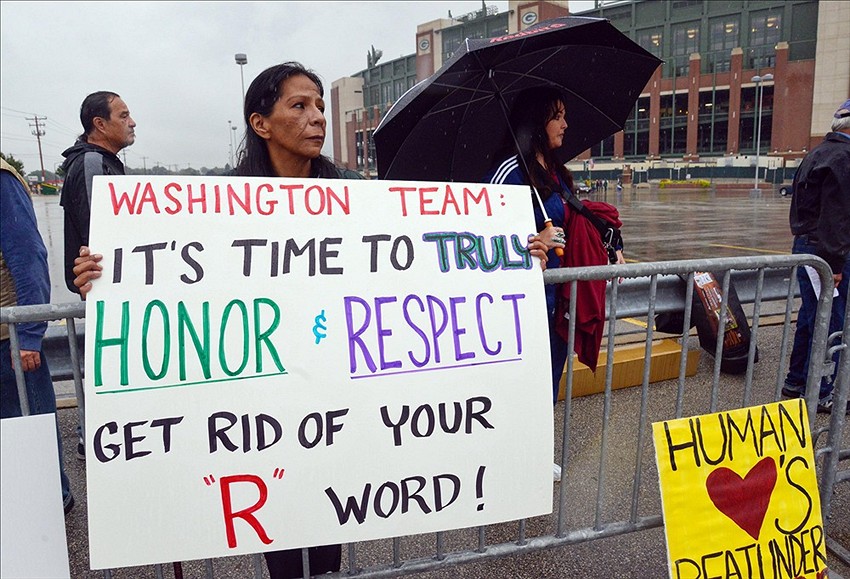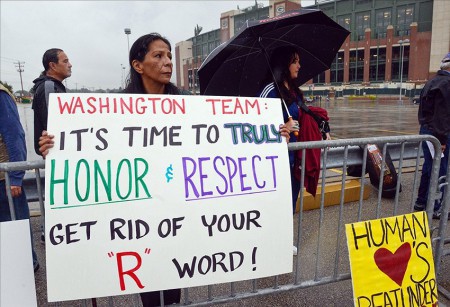By Rebecca K. Smith, CLDC Board President & Cooperating Attorney
Last week, in Pro-Football Inc. v. Blackhorse, a federal court in Virginia rejected a professional football association’s claim that it is entitled to trademark registration for the “Washington Redskins” logo. The court found that the “R” word may disparage a substantial number of Native Americans. Therefore, the term cannot be registered as a trademark under federal law.
The issue of whether the logo may be registered as a trademark has been litigated by Native American plaintiffs for the past two decades. By registering a trademark, a company gains a legal right to sue others who attempt to use the logo without permission. In contrast, if a trademark is not registered, or if the registration is cancelled, the logo may still be used, but it may now be used freely by anyone, which essentially eliminates its financial value. In this way, cancellation of trademark registration could result in a company choosing a new logo that can be registered and legally protected for the company’s financial gain.
Using the “R” word for a football mascot has always been controversial. As early as 1972, the National Congress of American Indians met with the professional football association to inform them that the name was a racial slur. Even the football association’s own expert linguist found in 1967, 1975, and again in 1985 that the “R” word “certainly might be offensive.”
The reason that offensiveness matters is because Section 2(a) of the Lanham Act states that a trademark shall be refused registration if it “consists of . . . matter which may disparage . . . persons, living or dead, institutions, beliefs . . . or bring them into contempt, or disrepute . . . .”
The law requires that when determining whether the logo “may disparage” Native Americans, the courts must consider the views of Native Americans, not the views of the general public. Additionally, it is not necessary to establish that a majority of Native Americans share this view. Instead, only a substantial number must share this view.
In its analysis, the court first looked at numerous dictionaries that define the term as “offensive.” The court then reviewed multiple scholarly, literary, and media references that also all portray the “R” word as a derogatory term. Finally, the court reviewed statements by Native American leaders and individuals that indicate that the term is considered derogatory by Native Americans. After reviewing the evidence, the court concluded that the logo “may disparage” a substantial number of Native Americans.
Although this ruling does not mean that the football team is barred from using this racial slur as a logo, it does mean that the football team will likely no longer make money off of this racial slur. Eventually, the loss of profit may encourage the team to choose a new logo/mascot that can be lawfully registered as a trademark.


